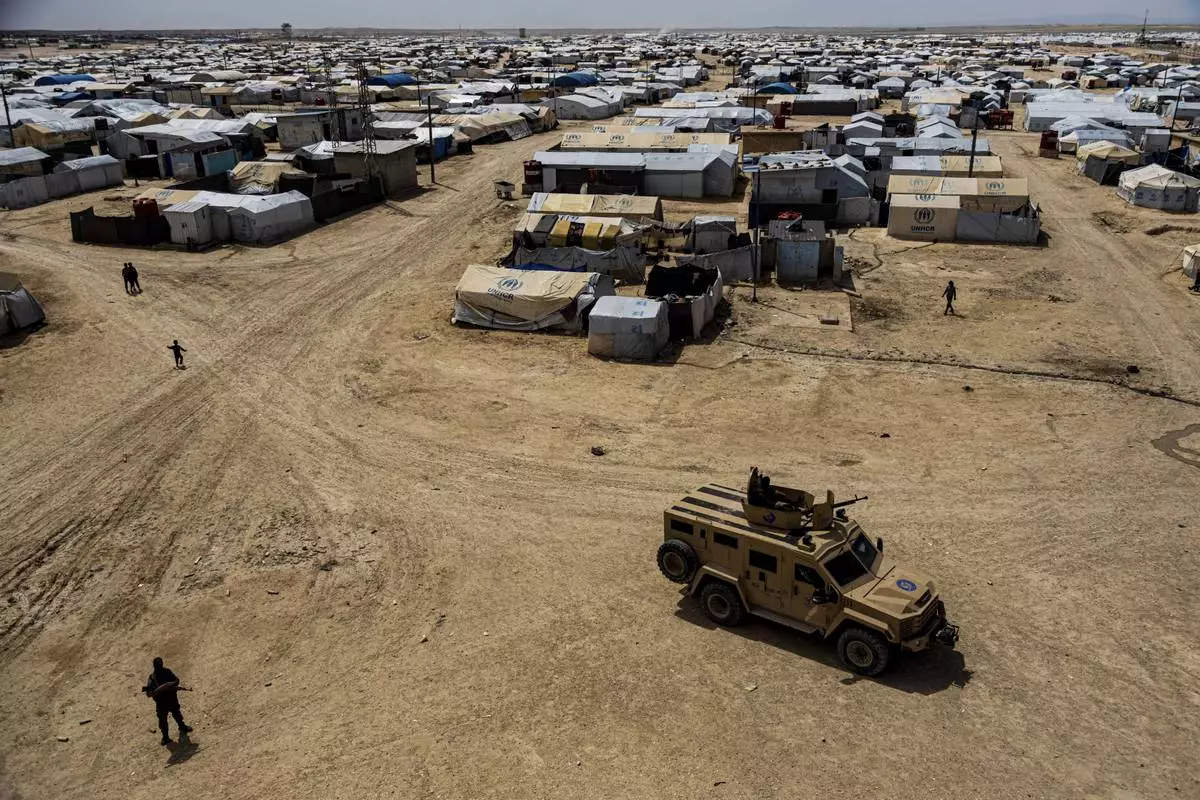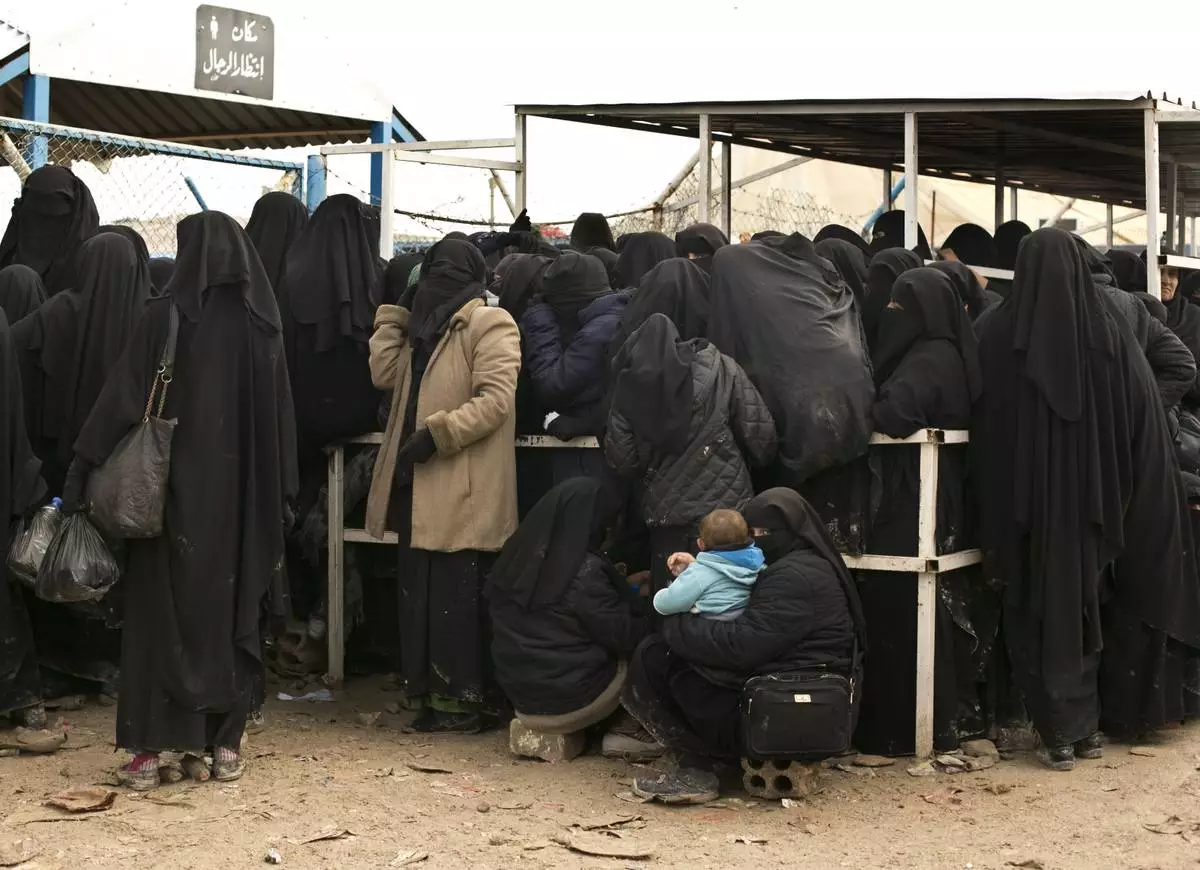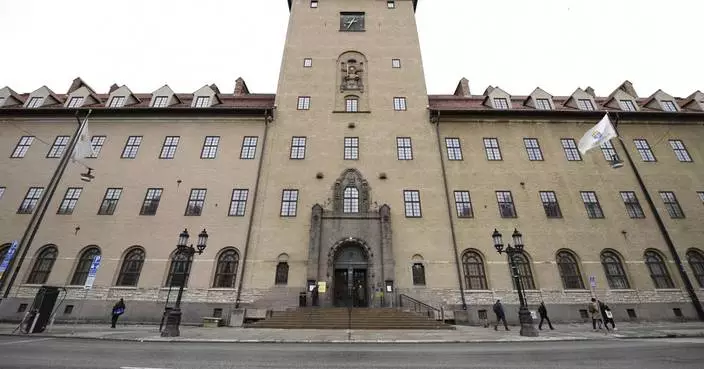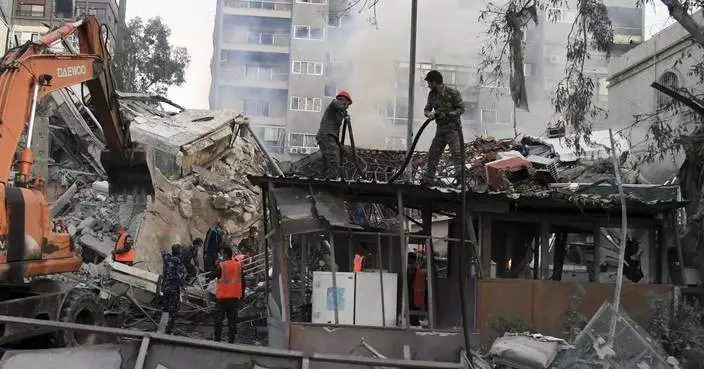The Syrian government took control of a town northeast of Damascus on Thursday after rebels evacuated to north Syria — the latest in a string of handovers by rebels to the government.
Residents in the town of Dumayr welcomed security forces into their town in a triumphant show for the cameras of the state-affiliated al-Ikhbariya TV station.
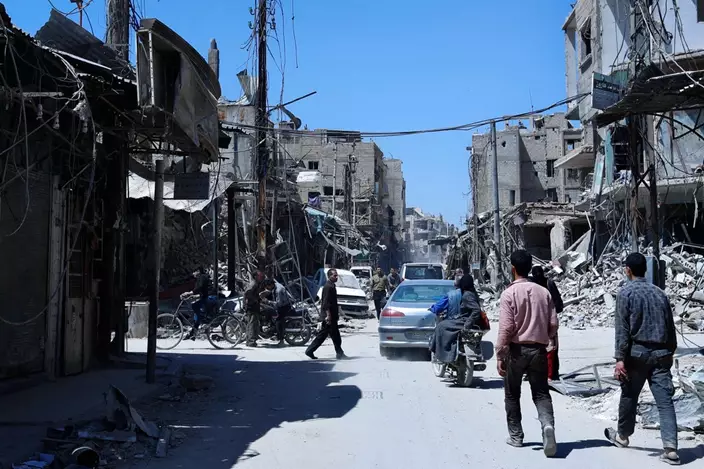
People walk among damaged buildings in the town of Douma, the site of a suspected chemical weapons attack, near Damascus, Syria, Monday, April 16, 2018. Two days after Syrian troops declared Douma liberated from opposition fighters, a tour in the city showed the wide destruction it has suffered since falling under rebel control six years ago. (AP Photo/Hassan Ammar)
Waving the national flag, they lifted al-Ikhbariya TV correspondent Rabieh Dibeh onto their shoulders and chanted their support for President Bashar Assad, after the last of 5,000 rebels and family members boarded buses and left the town.
There have been several handovers by rebels to the government in the capital region following a punishing government offensive against the rebellious eastern Ghouta region earlier this year.
More than 1,500 civilians were killed in the offensive, which culminated in allegations of a chemical weapons attack on the town of Douma, with reports that more than 40 people were killed.
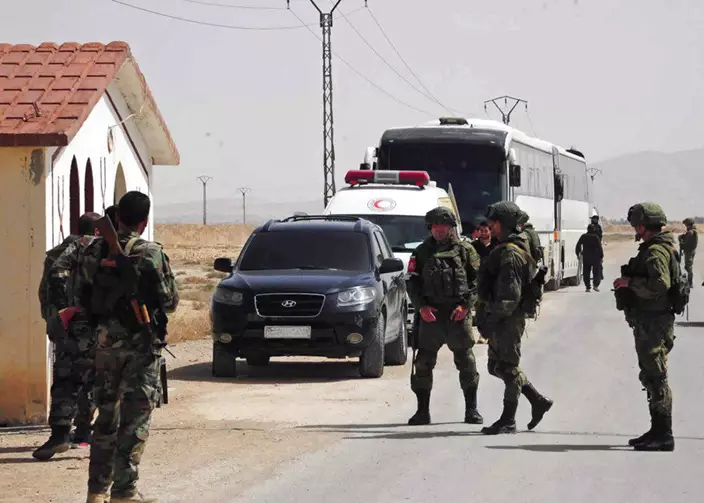
This photo released by the Syrian official news agency SANA, shows Russian soldiers and Syrian government forces overseeing the evacuation of rebel fighters from the Army of Islam and their families from the town of Dumayr, northeast of Damascus, Syria, Thursday, April 19, 2018. (SANA via AP)
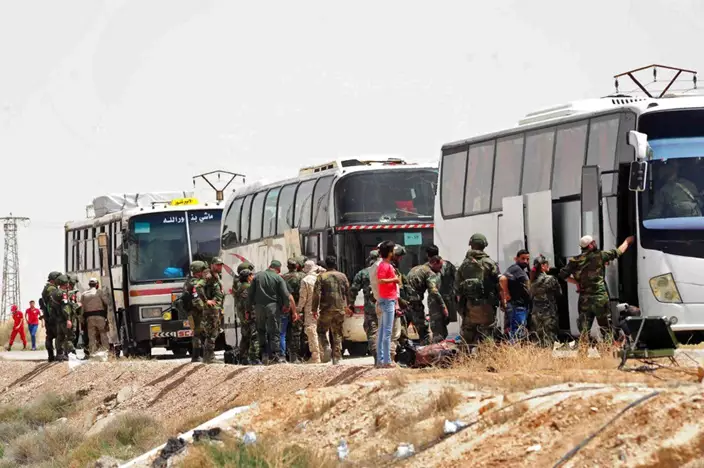
This photo released by the Syrian official news agency SANA, shows Russian soldiers and Syrian government forces overseeing the evacuation of rebel fighters from the Army of Islam and their families from the town of Dumayr, northeast of Damascus, Syria, Thursday, April 19, 2018. (SANA via AP)
Rebels surrendered towns across eastern Ghouta as the offensive drove on, giving up control of an area once home to an estimated 400,000 people in a matter of weeks.
The Army of Islam rebels in Dumayr followed their companions belonging to the same group from Douma to Jarablus, a town in north Syria shared between Turkish and Syrian opposition control.
The Syrian government has been following a proven strategy of besieging opposition areas until residents and fighters, desperate for food, medical treatment and relief, give up and accept government control.
The bruising offensives have displaced hundreds of thousands of residents, and tens of thousands more choose to leave to north Syria than to submit again to the government and be conscripted by the military.
U.N. officials and human rights groups say the strategy and the evacuation arrangements amount to forced population displacement, a war crime.
A similar arrangement to have Islamic State militants evacuate their pocket inside the capital appeared to collapse on Thursday.
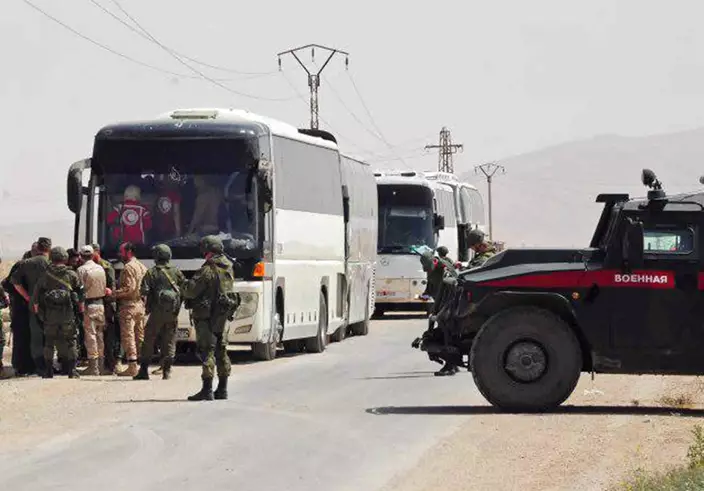
This photo released by the Syrian official news agency SANA, shows Russian soldiers and Syrian government forces overseeing the evacuation of rebel fighters from the Army of Islam and their families from the town of Dumayr, northeast of Damascus, Syria, Thursday, April 19, 2018. (SANA via AP)
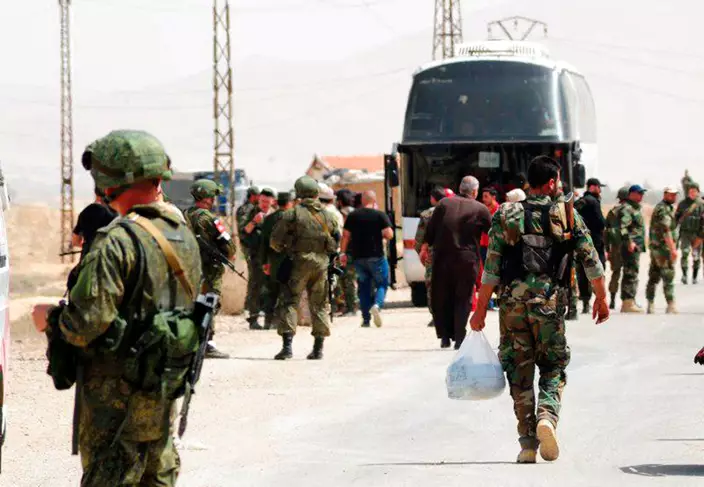
This photo released by the Syrian official news agency SANA, shows Russian soldiers and Syrian government forces gathering next to a bus during the evacuation of rebel fighters from the Army of Islam and their families from the town of Dumayr, northeast of Damascus, Syria, Thursday, April 19, 2018. (SANA via AP)
Government forces began bombarding the Hajr al-Aswad neighborhood and Yarmouk Palestinian camp inside Damascus only hours after reports surfaced that IS militants would be given two days to leave.
Local opposition activist Sami Dreid, in the nearby Yalda neighborhood, said the militants were expected to relocate to IS-held territory in the east Syrian desert. He said it was not clear why the deal appeared to have fallen through.
Dumayr, in the Qalamoun mountains, is a short drive away from Douma, the site of the alleged April 7 chemical weapons attack.
Inspectors from the Organization for the Prohibition of Chemical Weapons were still not able to reach the scene on Thursday, 12 days after the suspected attack.
The attack prompted the United States, France and Britain to strike at suspected Syrian chemical weapons facilities. The three countries said they held the Syrian government and its ally Russia responsible.
Damascus and Moscow denied responsibility.
A U.N. security team touring the sites of the alleged attack on Tuesday was shot at and subjected to a blast, said OPCW Director-General Ahmet Uzumcu.
The security team was supposed to give the all-clear for OPCW inspectors to follow, but their visit was put on hold pending the security situation, Uzumcu added.
A U.N. spokesman said discussions were taking place in the Syrian capital to arrange security to allow OPCW inspectors to visit Douma.
Stephane Dujarric said the U.N. did not want to "telegraph" when a U.N. security team would return, "due to the volatility" of the situation on the ground.
State Department spokeswoman Heather Nauert said U.S. officials "have credible information that indicates that Russian officials are working with the Syrian regime to deny and to delay these inspectors from gaining access to Duma."
"We believe it is an effort to conduct their own staged investigations," Nauert told reporters in Washington. "Russian officials have worked with the Syrian regime, we believe, to sanitize the locations of those suspected attacks and remove incriminating evidence of chemical weapons use."
Journalists visited Douma a day before the U.N. security team. They were not exposed to any weapons fire.
Associated Press journalists spoke to witnesses who said they were overwhelmed by the smell of chlorine and experienced fainting during an April 7 assault.
First responders released videos purporting to show fatalities from the attack — lifeless bodies collapsed in an apartment, with foam around their mouths, a sign of asphyxiation.
The Army of Islam, which controlled Douma at the time of the attack, surrendered the town to the government days later.
Also on Thursday, neighboring Iraq launched airstrikes inside Syria targeting militants from the Islamic State group.
Iraqi Prime Minister Haider al-Abadi's office said Iraqi fighter jets launched "lethal" airstrikes against the extremists in an area along the Syria-Iraq border. The statement said the militants posed a threat to Iraq, without providing further details.
Syrian and Iraqi forces have driven IS from nearly all the territory the group once held, but the extremists have maintained a presence in the remote desert areas along the border. Iraq has carried out airstrikes in Syria against the group in the past.



